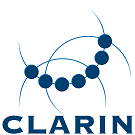Machine translation: Difference between revisions
No edit summary |
|||
| (9 intermediate revisions by 3 users not shown) | |||
| Line 1: | Line 1: | ||
== | <languages/> | ||
<translate> | |||
==Machine Translation Engines== <!--T:1--> | |||
<!--T:82--> | |||
Publicly available machine translation engines from or to Dutch: | |||
*[https://www.deepl.com/translator DeepL] | |||
*[https://translate.google.com/ Google translate] | |||
*[https://www.bing.com/translator Bing Microsoft translator] | |||
*[https://www.reverso.net/ Reverso] | |||
*[https://webgate.ec.europa.eu/etranslation/public/welcome.html eTranslation from the European Union] | |||
*[https://mateo.ivdnt.org/Translate MATEO No Language Left Behind] | |||
<!--T:83--> | |||
A list of machine translation engines for Dutch, hosted by [https://machinetranslate.org/ machinetranslate.org] can be found here: | |||
*[https://machinetranslate.org/dutch MT Engines] | |||
==Text2Picto/Picto2Text== <!--T:2--> | |||
<!--T:3--> | |||
Text2Picto and Picto2Text are two complementary translation tools aimed at enhancing communication for people with reading disabilities. | Text2Picto and Picto2Text are two complementary translation tools aimed at enhancing communication for people with reading disabilities. | ||
<!--T:4--> | |||
Text2Picto translates sentences into pictographs – that is, graphic symbols that serve as stand-ins for verbal communication – while Picto2Text does the reverse by allowing users to select the pictographs that they want to translate into written text. Both tools have been developed by the Centre for Computational Linguistics at the University of Leuven. | Text2Picto translates sentences into pictographs – that is, graphic symbols that serve as stand-ins for verbal communication – while Picto2Text does the reverse by allowing users to select the pictographs that they want to translate into written text. Both tools have been developed by the Centre for Computational Linguistics at the University of Leuven. | ||
<!--T:5--> | |||
* [http://picto.ccl.kuleuven.be/ Picto demo] | * [http://picto.ccl.kuleuven.be/ Picto demo] | ||
<!--T:6--> | |||
Additonal features were added to the tools. Demos of these features are available for Dutch: | Additonal features were added to the tools. Demos of these features are available for Dutch: | ||
[http://picto.ccl.kuleuven.be/index_spellcheck.php Spelling Correction], which is a crucially important feature since the users of Text2Picto often spell phonetically. | <!--T:7--> | ||
[http://picto.ccl.kuleuven.be/index_wsd.php Word-Sense Disambiguation], which identifies the correct sense of polysemous words and retrieves the correct pictograph for that sense. | *[http://picto.ccl.kuleuven.be/index_spellcheck.php Spelling Correction], which is a crucially important feature since the users of Text2Picto often spell phonetically. | ||
[http://picto.ccl.kuleuven.be/index_simplify.php Text2Picto + Simplification & Temporal Detection], which adds pictographs depicting temporal relations between the other symbols and simplifies syntactic structure. | *[http://picto.ccl.kuleuven.be/index_wsd.php Word-Sense Disambiguation], which identifies the correct sense of polysemous words and retrieves the correct pictograph for that sense. | ||
*[http://picto.ccl.kuleuven.be/index_simplify.php Text2Picto + Simplification & Temporal Detection], which adds pictographs depicting temporal relations between the other symbols and simplifies syntactic structure. | |||
<!--T:8--> | |||
==ASTrED Demo== | ==ASTrED Demo== | ||
This demo illustrates a number of metrics that quantify the syntactic differences between two sentences. These sentences can (but need not) be written in a different language. Such metrics are for instance useful when comparing a (machine) translation with the original source text, to find differences and similarities between two different translations, or to see how a machine translation differs from a reference translation. | This demo illustrates a number of metrics that quantify the syntactic differences between two sentences. These sentences can (but need not) be written in a different language. Such metrics are for instance useful when comparing a (machine) translation with the original source text, to find differences and similarities between two different translations, or to see how a machine translation differs from a reference translation. | ||
<!--T:9--> | |||
* [https://lt3.ugent.be/resources/astred-demo/ Information] | * [https://lt3.ugent.be/resources/astred-demo/ Information] | ||
* [https://lt3.ugent.be/astred-demo/ Demo] | * [https://lt3.ugent.be/astred-demo/ Demo] | ||
</translate> | |||
Latest revision as of 15:57, 13 November 2025
Machine Translation Engines
Publicly available machine translation engines from or to Dutch:
- DeepL
- Google translate
- Bing Microsoft translator
- Reverso
- eTranslation from the European Union
- MATEO No Language Left Behind
A list of machine translation engines for Dutch, hosted by machinetranslate.org can be found here:
Text2Picto/Picto2Text
Text2Picto and Picto2Text are two complementary translation tools aimed at enhancing communication for people with reading disabilities.
Text2Picto translates sentences into pictographs – that is, graphic symbols that serve as stand-ins for verbal communication – while Picto2Text does the reverse by allowing users to select the pictographs that they want to translate into written text. Both tools have been developed by the Centre for Computational Linguistics at the University of Leuven.
Additonal features were added to the tools. Demos of these features are available for Dutch:
- Spelling Correction, which is a crucially important feature since the users of Text2Picto often spell phonetically.
- Word-Sense Disambiguation, which identifies the correct sense of polysemous words and retrieves the correct pictograph for that sense.
- Text2Picto + Simplification & Temporal Detection, which adds pictographs depicting temporal relations between the other symbols and simplifies syntactic structure.
ASTrED Demo
This demo illustrates a number of metrics that quantify the syntactic differences between two sentences. These sentences can (but need not) be written in a different language. Such metrics are for instance useful when comparing a (machine) translation with the original source text, to find differences and similarities between two different translations, or to see how a machine translation differs from a reference translation.
